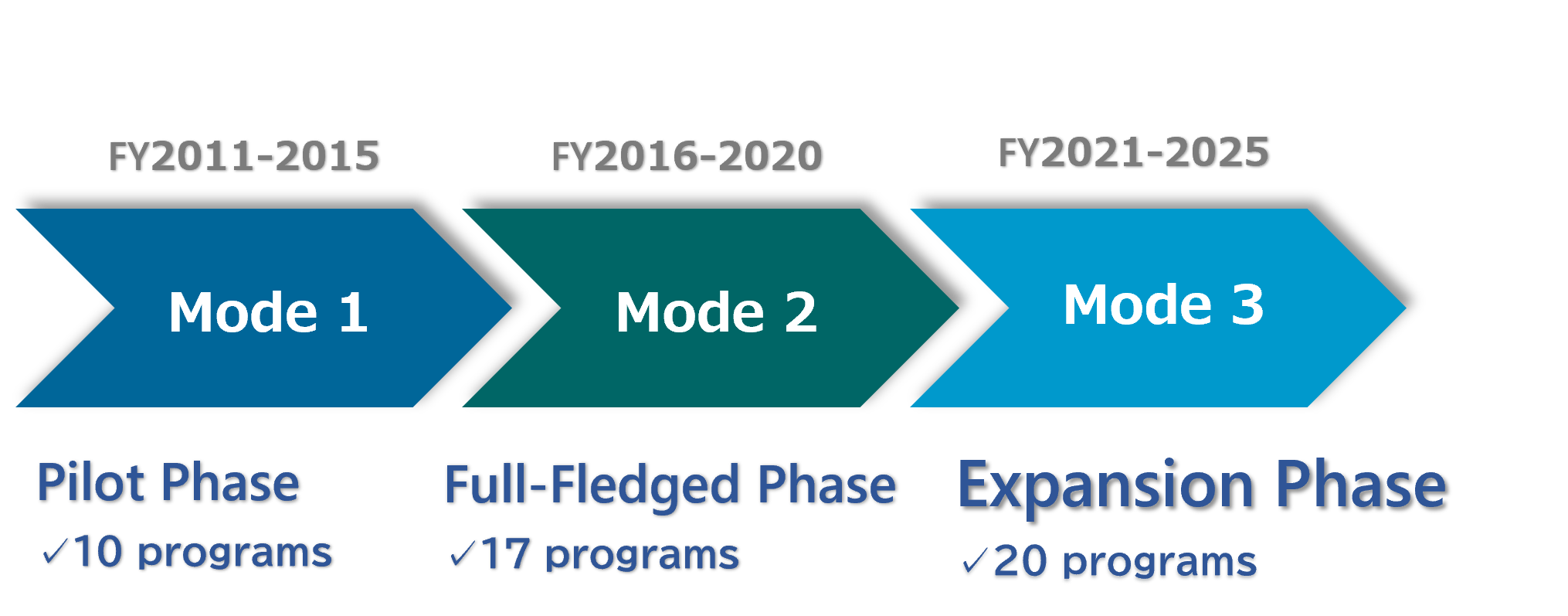'CAMPUS Asia' Initiatives
'CAMPUS Asia'* is a concept established by the Japanese, Chinese, and Korean governments to promote quality-assured student exchange.
(*Collective Action for Mobility Program of University Students in Asia)
At the second Japan-China-Korea Trilateral Summit in 2009 (Ministry of Foreign Affairs website), a proposal was made to further promote high-quality inter-university exchange between the three countries. In April 2010, the Japan-China-Korea Committee for Promoting Exchange and Cooperation among Universities was established by the governments, universities, and industry officials of the three countries, and the governments-led 'CAMPUS Asia' initiative was hereby launched (Ministry of Education, Culture, Sports, Science, and Technology (MEXT) website).
This initiative aims to foster global human resources and strengthen the global development of university education by promoting inter-university exchange; it also emphasizes the importance of quality assurance for both programs and curriculums. In line with this concept, a framework for quality-assured inter-university exchange was requested. To support the concrete efforts for quality assurance initiatives, the quality assurance agencies of the three countries have been participating in the 'CAMPUS Asia' initiative since it was first launched.
- See the Quality Assurance for 'CAMPUS Asia' page.
From Trials to Full-fledged Implementation - 'CAMPUS Asia' Mode 1 and Mode 2
The 'CAMPUS Asia' promotes international collaborative academic programs implemented by consortiums established through the cooperation of at least three universities in Japan, China, and Korea.
Undergraduate exchanges are recommended for one semester or more, as are graduate-level exchanges for awarding double degrees. In all academic fields, the basic framework is to ensure a balance between incoming and outgoing students.
Each mode of the 'CAMPUS Asia' project lasts five years, and the Japanese, Chinese, and Korean governments jointly determine the adoption of participating programs. Mode 1, conducted from FY2011 to 2015, was a trial period during which 10 pilot programs were implemented. The three countries' governments recognized their outstanding achievements and thus, Mode 2 from FY2016 to 2020, became a full-fledged implementation with the number of participating programs increasing to 17 (eight continued from Mode 1 and nine new for Mode 2).
Participating universities in Japan were selected within the 'Inter-University Exchange Project' initiated by MEXT.
List of Selected Universities (Japan Society for the Promotion of Science website)
- Mode 1 (2011 Type A-1: programs implemented between universities in Japan, China, and Korea)
- Mode 2 (2016 Type A: promotion of the 'CAMPUS Asia' project)
Expanding beyond JCK - 'CAMPUS Asia' Mode 3
Starting in 2021, the participating countries expanded beyond Japan, China, and Korea toward sustainable development and expansion of 'CAMPUS Asia' in Mode 3.
Specifically, some universities from ASEAN countries have joined from Mode 3, and 20 programs, including seven new ones, have been initiated since November 2021 (the universities from Japan were selected through the "Inter-University Exchange Project" by MEXT in 2021).
In Mode 3, an exchange of at least three months is recommended for undergraduate programs; an additional recommendation is the awarding of double or joint degrees for graduate programs. In addition, Mode 3 encourages the utilization of a variety of media and extra-curricular activities outside of academic experiences, such as internships.


